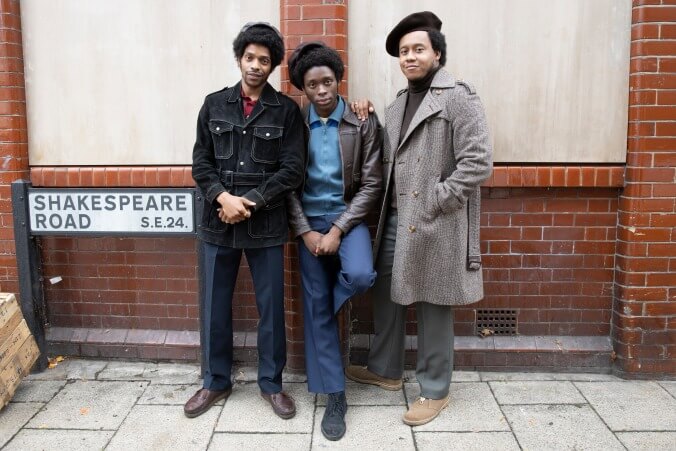Alex Wheatle is the latest revelation from Steve McQueen’s Small Axe

In most biopics, filmmakers offer their audience a sweeping bird’s-eye view of the life of a historical figure. These films chronicle the person’s childhood and any trials or tribulations they may have faced before ending in a typical flourish of the subject’s successes and triumphs. In Alex Wheatle, the fourth film in the Small Axe anthology, which follows London’s West Indian community from the 1960s into the 1980s, Steve McQueen offers something different. The British-born filmmaker presents a snapshot of the life of a young man who was never meant to rise above his circumstances.
Taking inspiration from the real-life British novelist who is not yet 60, McQueen unfurls the story of a despondent young man on the verge of discovering his identity and his power in just over an hour. When Alex Wheatle opens, Alex (newcomer Sheyi Cole) is stoic and full of rage. Standing shirtless in prison, he’s shoved into a jail cell with a larger-than-life Rastafarian named Simeon (Robbie Gee), whose stomach issues and constant trips to the toilet leave the small room intolerable. Disgusted with the state of his life and Simeon’s bathroom habits, Alex chooses to retaliate against the much larger man. What happens next is unexpected. Simeon offers Alex compassion, understanding, and some guidance. Up until that point, it’s one of only a handful of times the young man is offered such grace.
Laying in his bunk in prison, Alex mentally retraces the steps that have led him down this path. His memories began with a slap in the face, literally. We learn the young Alex (played here by Asad-Shareef Muhammad) was abandoned by his parents at birth and raised in a group home in Surrey. Confined in an all-white community, he was emotionally and physically abused by his foster mother. She called him “a horrible, nasty little boy.” Alex was also often the subject of racial attacks by his schoolmates. As with the first three films in his saga, Mangrove, Lovers Rock, and Red, White And Blue, McQueen shines a bright light on the racism, xenophobia, and classism that continues to brew in the U.K., issues that many Brits insist don’t exist.
Raised without a family and little to no knowledge of Black culture, things begin to shift for Alex when he ages out of the system. As a young man, he lands in Brixton, an Afro-Caribbean community thriving with culture, food, traditions, and most importantly, Black people. Despite his own afro-textured hair and deeply melanated skin, Alex soon realizes he’s an outsider amongst his people. Sticking out like a sore thumb in his new neighborhood, Alex quickly gets a crash course in the dress, manner, and lingo of Black Caribbeans, mainly from his friend Dennis (Jonathan Jules). However, Alex soon discovers that fitting in doesn’t mean belonging.

















![HBO teases new Euphoria, Larry David, and much more in 2026 sizzle reel [Updated]](https://img.pastemagazine.com/wp-content/avuploads/2025/12/12100344/MixCollage-12-Dec-2025-09-56-AM-9137.jpg)






















